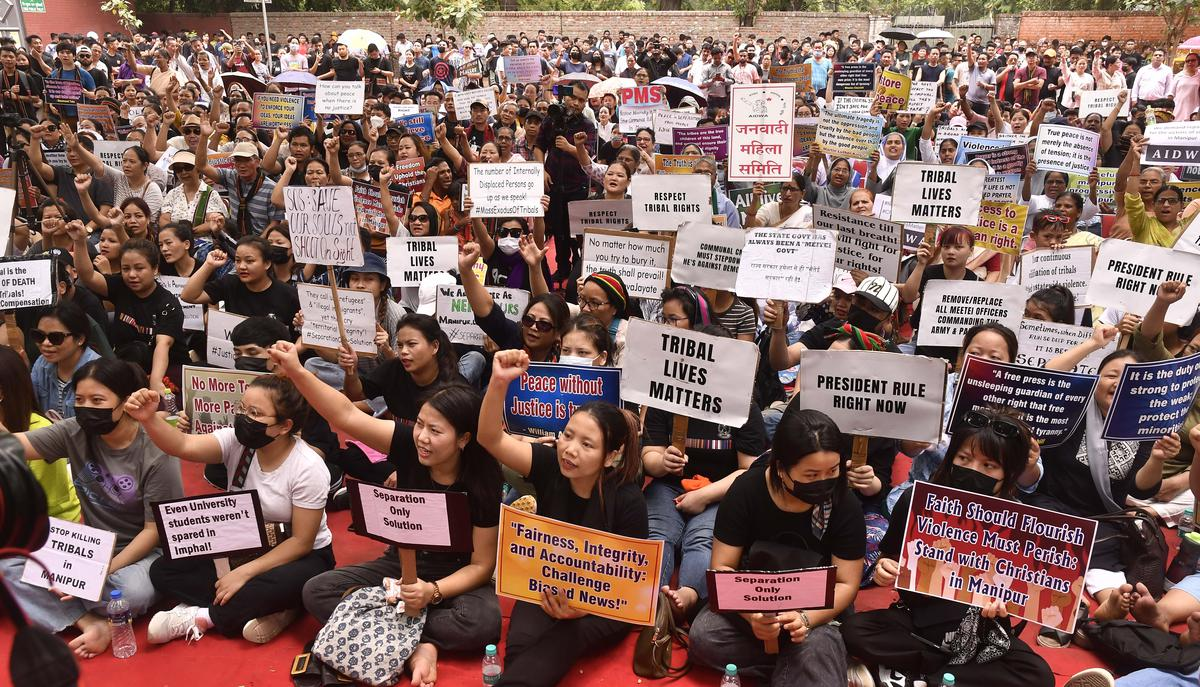Free Courses Sale ends Soon, Get It Now


Free Courses Sale ends Soon, Get It Now



Copyright infringement not intended
Picture Courtesy: www.thehindu.com
Context: The Union Government has directed the Manipur State Government to examine a representation sent by Maheshwar Thounaojam, the National Secretary of the Republican Party of India in Manipur, seeking the delisting of certain Kuki and Zomi tribes from the Scheduled Tribes (ST) list of Manipur.
Details
Representation by Thounaojam
Claims and Counter-Arguments
Historical Recommendations
Current Developments
|
Kuki-Zomi Tribes ●The Kuki-Zomi tribes inhabit the northeastern Indian states of Manipur, Nagaland, Assam, Meghalaya, Tripura, and Mizoram, extending into neighbouring Myanmar and Bangladesh. ●Belonging to the Kuki-Chin language family, the Kuki-Zomi tribes share linguistic and cultural affinities with the Chin people of Myanmar and the Mizo people of Mizoram. ●The term "Kuki" has been historically used to encompass a broader grouping, while "Zomi" emerged as a preferred term by some sub-tribes seeking a distinct identity. This complex issue continues to spark debate and discourse. |
Conclusion
Must Read Articles:
KUKIS: https://www.iasgyan.in/daily-current-affairs/kukis
SCHEDULED TRIBES LIST: https://www.iasgyan.in/daily-current-affairs/scheduled-tribes-list
CRITERIA TO DEFINE STs: https://www.iasgyan.in/daily-current-affairs/criteria-to-define-sts
|
PRACTICE QUESTION Which of the following statements is NOT true about the Kuki-Zomi tribes? A) They primarily inhabit the northeastern Indian states and extend into neighbouring countries. B) They share linguistic and cultural similarities with the Chin and Mizo people. C) They consist of numerous sub-tribes with distinct customs and dialects. D) They have a homogenous identity and terminology within the group. Answer: D Explanation: The Kuki-Zomi tribes encompass diverse sub-tribes with individual identities and ongoing debates about terminology like "Kuki" and "Zomi." |
© 2024 iasgyan. All right reserved